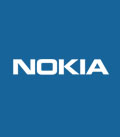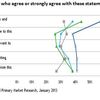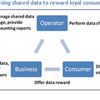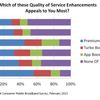3GPP Long Term Evolution 4G 4G LTE Alcatel-Lucent Application Enablement application enablement Bell Labs broadband CloudBand Customer experience customer experience Dynamic Enterprise eco-sustainability Enriching Communications Green IT high leverage network IMS Internet Protocol IP/MPLS LTE mobile data Mobile network operator Motive multimedia network operators Network Transformation Next Generation Communications next generation communications NFV ng Connect QoE Research SDN Service provider VoLTE Web 2.0 Wi-Fi Wireless wireless wireless broadband
- A New Conversation Experience (53)
- Alcatel-Lucent Corporate News (224)
- Alcatel-Lucent Technology News (451)
- Analytics (8)
- BYOD (7)
- Bell Labs Innovation (15)
- Big Data (13)
- Broadband (250)
- Business Talk (54)
- Cable MSOs (7)
- Cloud (50)
- Community Outreach (1)
- Customer Care (23)
- Customer Experience (58)
- DSL (24)
- Data Center (9)
- Eco-sustainability (25)
- Enterprise (18)
- Fiber Optics (17)
- Fixed Networks (22)
- GridTalk (3)
- IP Platforms (43)
- IP Routing and Transport (42)
- IP/MPLS (31)
- Internet of Things (5)
- LTE (152)
- LifeTalk (3)
- M2M (11)
- Mobile Data (54)
- Mobile Marketing (38)
- Mobile advertising (7)
- Municipal Broadband (1)
- NFV (21)
- Network Functions Virtualization (12)
- Network Management (5)
- Next Generation Communication Services (1)
- Next-Generation Communications (564)
- Optical Networking (14)
- Public Safety (5)
- Research (78)
- SDN (13)
- Satellite (1)
- Security (27)
- Small Cells (33)
- Smart Grid (17)
- Social Media (4)
- TEch Talk
- TechZine (15)
- TrackTalk (3)
- VDSL2 (3)
- Video (21)
- VoLTE (17)
- Web 2.0 (87)
- WebRTC (10)
- Wi-Fi (16)
- WiMAX (32)
- Wireless (238)
- ng Connect (28)
- November 2015
- October 2015
- September 2015
- August 2015
- July 2015
- June 2015
- May 2015
- April 2015
- March 2015
- February 2015
- January 2015
- December 2014
- November 2014
- October 2014
- September 2014
- August 2014
- July 2014
- June 2014
- May 2014
- April 2014
- March 2014
- February 2014
- January 2014
- December 2013
- November 2013
- October 2013
- September 2013
- August 2013
- July 2013
- June 2013
- May 2013
- April 2013
- March 2013
- February 2013
- November 2012
- August 2012
- July 2012
- June 2012
- May 2012
- April 2012
- March 2012
- February 2012
- January 2012
- December 2011
- November 2011
- October 2011
- September 2011
- August 2011
- July 2011
- June 2011
- May 2011
- April 2011
- March 2011
- February 2011
- January 2011
- December 2010
- November 2010
- October 2010
- September 2010
- August 2010
- July 2010
- June 2010
- May 2010
- April 2010
- March 2010
- February 2010
- January 2010
- December 2009
- November 2009
- October 2009
- September 2009
- August 2009
- July 2009
- June 2009
- May 2009
- April 2009
- March 2009
- February 2009
- January 2009
- December 2008
- November 2008
- October 2008
- September 2008
Featured Videos















